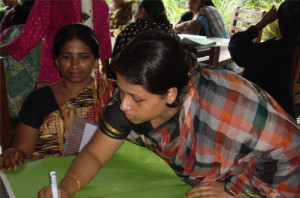Civil Society, Free Media, and Advocacy
 In many countries – even those that hold democratic elections – the daily policymaking process remains closed and does not involve input from the public. Consequently, laws and regulations are often made above the heads of those to whom they pertain. Public policy advocacy can address this democratic deficit by making civil society voices heard in an open and transparent manner. Successful advocacy efforts do not just ameliorate immediate problems: they help transform the relationship between the government and civil society from one of antagonism and distrust to one of partnership and cooperation.
In many countries – even those that hold democratic elections – the daily policymaking process remains closed and does not involve input from the public. Consequently, laws and regulations are often made above the heads of those to whom they pertain. Public policy advocacy can address this democratic deficit by making civil society voices heard in an open and transparent manner. Successful advocacy efforts do not just ameliorate immediate problems: they help transform the relationship between the government and civil society from one of antagonism and distrust to one of partnership and cooperation.
Private sector organizations represent an important component of a civil society and as such also have a role to play in public policy debate, contributing experience and knowledge to the policymaking process. By engaging in advocacy, business associations, chambers of commerce, and economic think tanks can participate in governance and create better conditions for growth and development. By providing decision-makers with key information and analysis, they can ensure that new laws and regulations improve business environment and further economic growth.
Participation in democratic governance hinges on the general public’s access to information. Useful access, however, requires more than disclosure of raw data. It requires reliable intermediaries – think tanks, civic associations, but above all free media – to provide sound analysis. Today the era of the Internet has opened up unprecedented opportunities for freer and more abundant information and communications flows around the world, empowering various civil society actors to advocate for their causes.

Recent Comments